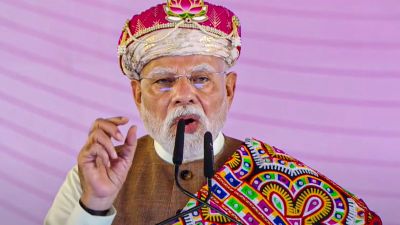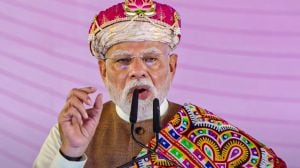I&B Ministry kept EC in dark on cable TV ad ban
The Election Commission was kept in the dark by the Information & Broadcasting Ministry about a provision in the Cable TV Regulation Act, 19...

The Election Commission was kept in the dark by the Information & Broadcasting Ministry about a provision in the Cable TV Regulation Act, 1995, which prohibits advertisement of religious/political nature totally.
It was only on January 22, that the I&B Ministry brought this provision to the Commission’s notice through a letter. This was followed by another letter on February 10, in which the Ministry asked for EC guidance on how to implement the prohibition on ads of political nature.
‘‘We clearly told them, it is an existing Act which is applicable in all times and which concerns the I&B Ministry. It does not relate to election time, in particular. The implementation of it is entirely the Ministry’s look out and not the Commission’s which should have been informed about it earlier,’’ EC sources said, adding that it was an IPC-like Act and its violators have to be punished. The issue, however, goes back to 1999. Unaware of this provision of the 1995 Act, the EC issued a directive on August 20, 1999, ‘‘it would not be appropriate to allow advertisements by political parties and candidates or any other organisation for the purposes of election campaign in any form in the electronic media’’.
The EC had argued that only a few major parties would be able to afford TV ads and therefore, it would ‘‘introduce serious distortions in the electoral arena’’. And therefore, the EC had for the first time decided to ban political ads during the 1998 general elections.
However, the I&B Ministry Secretary failed to bring it to the EC’s notice that the 1995 Cable TV Regulation Act was already in force and the issue did not require a fresh EC directive.
Subsequently, the Andhra Pradesh High Court — which looked into the issue in the light of poll expenditure of candidates — stayed the EC order. Four years down the line, the EC again issued a similar ban on political ads on the electronic media on November 19, 2003. This was withdrawn within two days after the Andhra HC order was rediscovered. ‘‘And, all this while the I&B Ministry kept silent on the fact that an Act of Parliament was already in place,’’ EC sources said.
After the EC studies the provision of the Act, it was found that Andhra HC order did not strike down Rule 7(3) of the Act which prohibits ads of political nature on cable TV networks.
Frowning at the controversy created by the I&B Ministry, Chief Election Commissioner T.S. Krishnamurthy ticked off Minister Ravi Shankar Prasad for confusing the issue. The EC clarified that the provision will not be applied in retrospect.
A day after, the Commission rapped the Government for putting words in its mouth, the I&B Ministry clarified that it had only sought the views of the Commission on whether to allow political advertisements on the electronic media.
The view of the Commission, it was felt, was necessary in the light of impending elections and an Andhra Pradesh High Court ruling in 1999, which had ‘‘struck down the Commission’s orders dated 20.8.1999 regarding ban on political advertisement on private television channels’’.
The Ministry had also observed that it did not have the necessary mechanism to monitor nearly 100 channels and 30,000 cable operators. The Commission responded by stating that Cable Television Networks (Regulation) Act 1995, Provision 7 (3) remains operational as the Court had not quashed the rule.
Photos


- 01
- 02
- 03
- 04
- 05





























